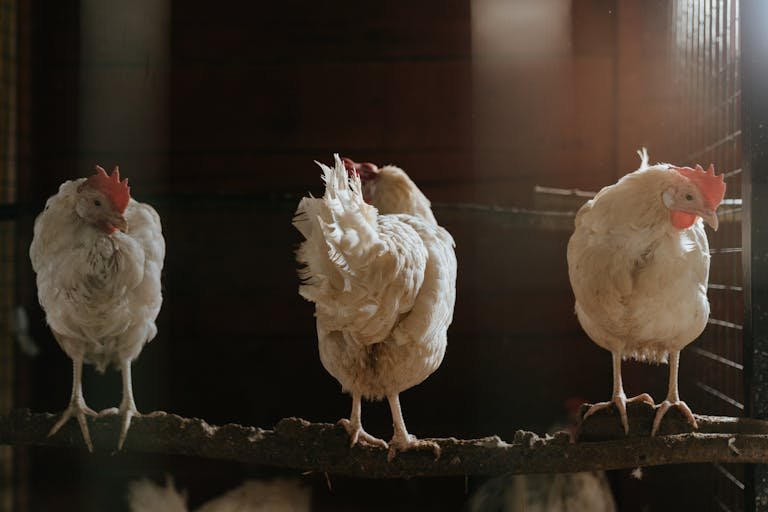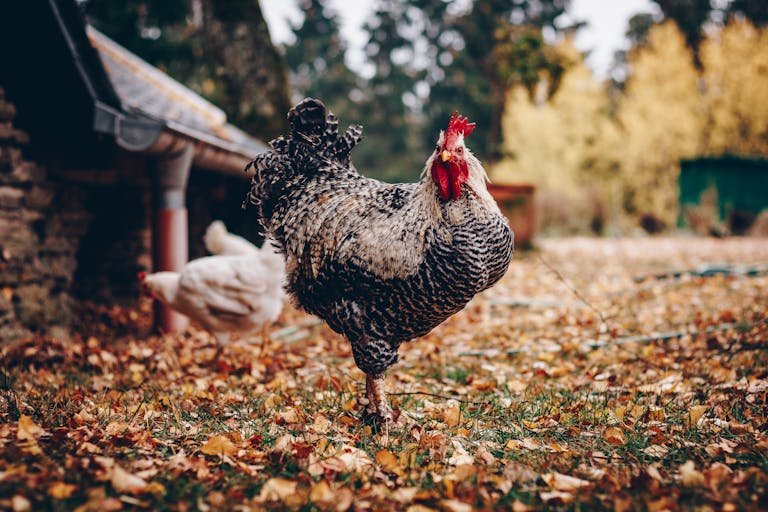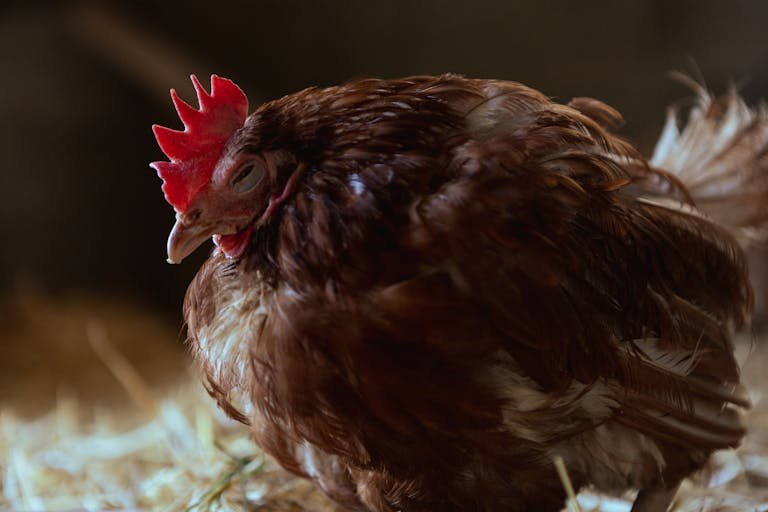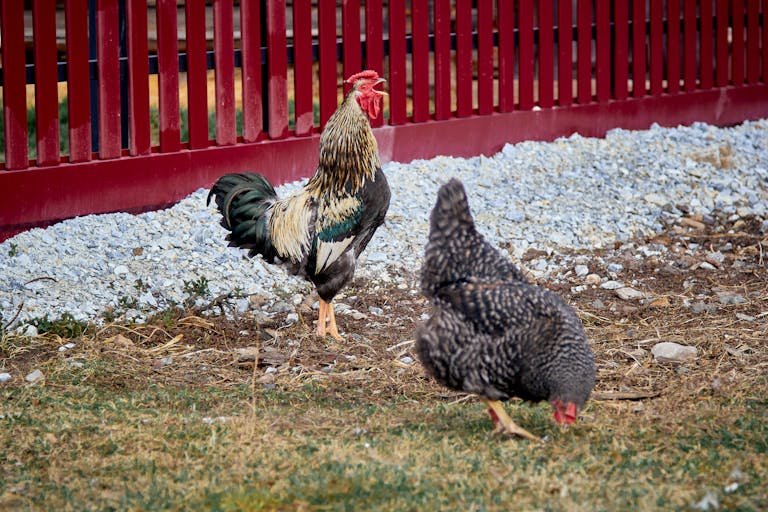20 Chicken Egg Problems: Easy Fixes

Raising chickens and harvesting their eggs is both a rewarding and delicate task. However, it’s not uncommon for chicken owners to encounter egg-related problems. These issues can stem from a variety of factors, including diet, genetics, environment, and disease. As a chicken keeper, it’s essential to know how to identify and address these common egg problems to maintain the health of your hens and the quality of their eggs. Below are the 20 most common chicken-egg problems, their causes, and practical solutions to help you address them.
1. Soft or Thin Shells
Causes:
- Nutritional deficiencies, particularly a lack of calcium or vitamin D.
- Stress from environmental factors, predators, or crowding.
- Age of the hen (older hens may produce eggs with thinner shells).
- Genetic predisposition in certain breeds.
Solutions:
- Ensure adequate calcium intake: Feed hens a balanced diet that includes calcium-rich supplements, such as oyster shells or limestone grit.
- Provide vitamin D: Chickens need sunlight to synthesize vitamin D. Ensure they have access to the outdoors or supplement their feed with vitamin D.
- Reduce stress: Ensure the chickens are comfortable, safe, and well cared for by limiting stress factors.
- Genetic selection: If shell problems persist despite adequate nutrition, it may be a genetic issue. Consider breeding hens that consistently produce strong-shelled eggs.
2. Double Yolks
Causes:
- Hormonal fluctuations.
- Young hens that are still adjusting to egg production.
- Stress can disrupt the hen’s reproductive cycle.
Solutions:
- No immediate action needed: Double yolks are generally harmless and often seen in young hens.
- Consult a veterinarian: If double yolks become frequent or if the hen shows signs of distress, consult a vet to rule out underlying health concerns.
3. Blood Stained Eggs
Causes:
- Prolapsed cloaca (the vent where eggs are laid).
- Vent pecking or cannibalism by other hens.
- Stress-induced injuries.
Solutions:
- Check for physical injuries: Inspect the hen’s vent for any signs of injury or prolapse and treat it immediately.
- Improve hygiene: Ensure nesting boxes and living areas are clean to prevent infections.
- Provide adequate space: Reduce overcrowding, as stress from cramped conditions can lead to aggressive behaviors like pecking.
4. Misshapen Eggs
Causes:
- Nutritional deficiencies, such as a lack of calcium or protein.
- Stress is caused by environmental factors or illness.
- Aging hens, as older birds are more likely to produce misshapen eggs.
- Genetic factors.
Solutions:
- Balanced diet: Make sure your hens are receiving the correct nutrients, including calcium, protein, and other vitamins.
- Reduce stress: Minimize disruptions to the hen’s routine and provide a calm, stress-free environment.
- Genetic selection: If misshapen eggs are a recurring issue, it may be wise to select different breeding stock.
5. No Yolk Eggs
Causes:
- Hormonal imbalances in hens.
- Stress, such as from predator threats or illness.
- Age-related changes, particularly in very young or older hens.
- Genetics.
Solutions:
- Consult a vet: If no yolk eggs are frequent, it’s best to consult a veterinarian to rule out serious hormonal imbalances.
- Reduce stress: Ensure hens have a comfortable and secure environment to lay eggs.
6. Egg Bound (Difficulty Laying)
Causes:
- Soft eggs that are difficult to pass.
- Constipation or digestive issues.
- Stress, including lack of exercise or environmental stressors.
- Age-related factors, especially in older hens.
Solutions:
- Provide warm water treatment: Gently place the hen in warm water to help relax her muscles and encourage egg passage.
- Gently massage the abdomen: Careful massages can help dislodge the egg.
- Consult a vet: If the problem persists, consult a veterinarian immediately, as being egg-bound can be life-threatening.
7. Egg Eating
Causes:
- Boredom or lack of stimulation in the environment.
- Stress, often from overcrowded or uncomfortable living conditions.
- Nutritional deficiencies, particularly protein.
Solutions:
- Provide enrichment: Give hens plenty of space, toys, and things to peck at to keep them engaged.
- Ensure proper nutrition: Make sure hens are getting enough protein in their diet.
- Separate the egg-eating hen: Isolate the hen responsible for eating eggs to prevent others from picking up the habit.
8. Pale or White Eggs
Causes:
- Nutritional deficiencies, especially in pigments affect shell color.
- Stress from the environment, illness, or predators.
- Age of the hen, as older hens may produce paler eggs.
- Genetics, as some breeds naturally lay white or pale-colored eggs.
Solutions:
- Improve nutrition: Ensure hens are receiving a balanced diet, with plenty of vitamins and minerals, especially those affecting shell color.
- Reduce stress: Provide a calm, comfortable environment for your hens.
- Consider breed characteristics: If your hens are laying white eggs but you expect brown, check to see if it’s normal for the breed.
9. Dirty Eggs
Causes:
- Poor hygiene in the coop or nesting boxes.
- Wet or soiled bedding material.
- Crowded or poorly maintained nesting areas.
Solutions:
- Clean nesting boxes regularly: Keep nesting areas dry and clean, replacing bedding frequently.
- Improve coop conditions: Ensure proper ventilation and drainage in the coop to prevent moisture build-up.
- Encourage hens to lay in clean boxes: Make sure hens are using nesting boxes for laying rather than dirty or damp areas.
10. Cracked Eggs
Causes:
- Rough handling, either by chickens or during collection.
- Thin shells due to calcium deficiencies.
- Genetics, as some hens may naturally lay more fragile eggs.
Solutions:
- Handle eggs carefully: Be gentle when collecting eggs to avoid cracks or breakages.
- Provide adequate calcium: Ensure that your hens have access to calcium supplements like oyster shells.
- Genetic selection: If thin shells are persistent, consider breeding hens with stronger egg production genetics.
11. Off-Flavored Eggs
Causes:
- Poor diet, such as feeding chickens pungent foods like garlic or onions.
- Medications that the hens are taking, can affect egg flavor.
- Stress or illness.
Solutions:
- Monitor the hen’s diet: Avoid feeding chickens strong-flavored foods that can transfer to the eggs.
- Check medications: If your hens are on medication, consult a vet to determine if it’s affecting egg taste.
- Reduce stress: Ensure the hens are healthy and stress-free, as illness or anxiety can also impact egg quality.
Read Also: Top 10 Long-Legged Chicken Breeds Ever
12. Small Eggs
Causes:
- Young hens still adjusting to egg-laying.
- Stress factors, such as predators or illness.
- Genetic predispositions in some breeds.
Solutions:
- Be patient with young hens: Allow younger hens time to regulate their egg size as they mature.
- Consider genetic selection: If small eggs persist and are undesirable, choose breeding hens that lay larger eggs.
13. Hard-Boiled Eggs
Causes:
- Prolonged exposure to high temperatures.
- Poor handling and storage of eggs.
- Stress or disease affecting the egg’s internal structure.
Solutions:
- Proper storage: Store eggs in a cool environment immediately after collection.
- Monitor the hen’s health: If eggs come out unusually hard-boiled or overcooked, check for potential illnesses that may affect the eggs.
14. Greenish Eggs
Causes:
- Bacterial contamination of the egg.
- Medications affecting the egg color.
Solutions:
- Discard greenish eggs: Do not consume green eggs, as they could indicate bacterial contamination.
- Improve hygiene: Keep nesting boxes clean and ensure proper sanitation practices.
- Check medication: If you’re medicating your chickens, consult a vet about any effects on egg color.
15. Black Eggs
Causes:
- Bacterial contamination, such as mold or fungal growth inside the egg.
Solutions:
- Discard black eggs immediately: Black eggs are unsafe to consume.
- Improve sanitation: Ensure the nesting areas and coop are clean and disinfected regularly.
16. Egg Drop Syndrome 76 (EDS-76)
Causes:
- A viral infection that causes a sudden drop in egg production.
Solutions:
- Vaccinate against EDS-76: Protect your flock by vaccinating against this viral disease.
- Isolate-infected birds: Prevent the spread of the virus by quarantining sick chickens.
17. Infectious Bronchitis
Causes:
- A viral infection that affects the respiratory system and can lead to a decrease in egg production and quality.
Solutions:
- Vaccinate against infectious bronchitis: Ensure your flock is vaccinated to prevent outbreaks.
- Quarantine-affected birds: Isolate infected chickens to avoid spreading the disease.
18. Newcastle Disease
Causes:
- A viral infection that can cause respiratory issues and a sudden drop in egg production.
Solutions:
- Vaccinate against Newcastle disease: Prevent this deadly virus through vaccination.
- Maintain biosecurity: Follow strict biosecurity measures to protect your flock from infection.
19. Salmonella
Causes:
- Bacterial infections can contaminate eggs and lead to foodborne illness in humans.
Solutions:
- Practice good hygiene: Clean the coop and nesting boxes regularly and wash your hands after handling eggs.
- Vaccinate against Salmonella: Consider vaccinating your flock to prevent the spread of this dangerous bacteria.
- Cook eggs thoroughly: Always ensure eggs are fully cooked to eliminate the risk of Salmonella infection.
20. Coccidiosis
Causes:
- Parasitic infection affects the intestines and can cause diarrhea, weight loss, and decreased egg production.
Solutions:
- Use coccidiostats in feed: Provide medicated feed to prevent and treat coccidiosis in your flock.
- Consider vaccination: Vaccinate young chicks against coccidiosis to protect them from this parasite.
Read Also: Long-Haired Wonders: Top 10 Chicken Breeds
Closing
Maintaining the health of your flock and ensuring consistent, high-quality egg production requires diligence and attention to detail. By understanding these common chicken-egg problems and their solutions, you can prevent many issues before they arise. Whether it’s improving nutrition, addressing stress, or implementing proper hygiene, these small changes can make a significant difference. Have you encountered any of these problems with your chickens, and what solutions worked best for you?





